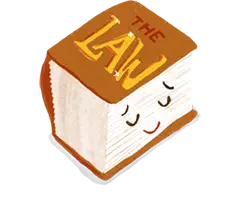Topic
Te reo Māori
This page contains different parts of laws about Te reo Māori, within the topic of Māori affairs.

Important laws about Te reo Māori
Broadcasting Act 1989
The Broadcasting Commission's main jobs are to promote New Zealand programmes and culture.
36: Functions of Commission
Broadcasting Act 1989
Setting up Te Reo Whakapuaki Irirangi, a government-owned agency
53A: Establishment of Te Reo Whakapuaki Irirangi
Broadcasting Act 1989
Te Reo Whakapuaki Irirangi helps people learn Māori language and culture through TV, radio, and internet programmes
53B: Functions of Te Reo Whakapuaki Irirangi
Broadcasting Act 1989
Things to Consider When Deciding on Funding for Broadcasting Projects
53E: Matters to be taken into account in relation to funding proposals
Broadcasting Act 1989
Money for Maori Language Broadcasting
53K: Funds of Te Reo Whakapuaki Irirangi
Broadcasting Act 1989
Commission pays money to Te Reo Whakapuaki Irirangi
53L: Payment of funds to Te Reo Whakapuaki Irirangi by Commission
Trade Marks Act 2002
This law explains what trade marks are and what the rules about them are for
3: Purposes
Trade Marks Act 2002
This law explains what trade marks are and how they work in New Zealand
4: Overview
Trade Marks Act 2002
What counts as using a sign for goods or services
6: Meaning of use of sign
Trade Marks Act 2002
What counts as using a trade mark in this law
7: Meaning of use of trade mark
More laws about Te reo Māori
About this project
What is this project?
This project is an experiment to take difficult language, and make it easier to read and understand for everyone.
How do we do this?
What's our process for taking the law and turning it into plain language?
Why is the law written like it is?
Laws are often hard to read. They use a lot of words and language we don't usually use when we talk.
Should we use AI for this?
What are the good and bad sides of using AI?
Is this information the actual law?
We hope that this information will help people understand New Zealand laws. But we think that it's important you talk to someone who understands the law well if you have questions or are worried about something.
You can talk to Community Law or Citizen's Advice Bureau about your rights.
Remember that AI can make mistakes, and just reading the law isn't enough to understand how it could be used in court.
You can talk to Community Law or Citizen's Advice Bureau about your rights.
Remember that AI can make mistakes, and just reading the law isn't enough to understand how it could be used in court.




